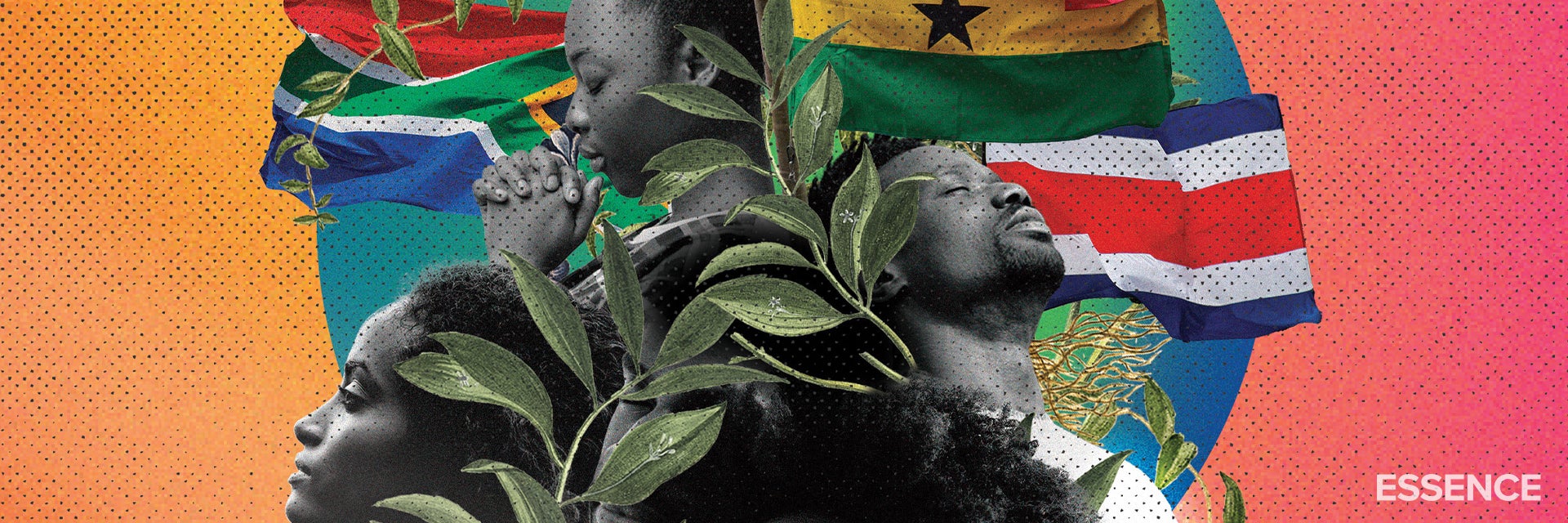Election night in November 2020 looms large in our minds. So does the unsettling possibility that President Donald Trump might be successful in his bid for reelection, subjecting the country to four more years of his administration. Although former Vice President Joe Biden is currently leading in the polls, Trump’s win against Hillary Clinton in 2016 has taught us that nothing is ever certain. If Trump secures another term, many Black people feel as though our communities will face a severe existential threat.
Many of the consequences of the past four years have already been catastrophic for us: the rollback of almost 100 environmental protections; the historic rise a 16-year high in 2018, according to the FBI—in racist and xenophobic hate crimes; the devastating and disproportionate deaths of people of color from the new coronavirus. “The livelihoods of millions of Black and Brown people are quite literally at stake in this election,” states Congresswoman Ilhan Omar (D-MN). “We’ve already seen exactly what happens when Donald Trump is at the wheel: 130,000 dead and counting from a disease this White House ignored. And in every age group, most of the dead are Black. In my home state of Minnesota, the coronavirus has taken the lives of Black people at twice the rate of their White counterparts, including my own father.”
In June Omar’s father, Nur Omar Mohamed, passed away at 67 years old, due to “complications from COVID-19.” None of us want to see any more of our loved ones die; nor do we want to live in a state of perpetual fear. So, while it may be painful for many to think about, how should Black people confront the possibility and minimize the chances of another Trump win? Across the political spectrum, the responses vary. For many, the answer is to fight to elect Joe Biden—who has struggled to connect with some young Black voters—as president. Others recommend decentering electoral politics, focusing instead on sustained efforts to defund the police and build intergroup alliances; while still others suggest leaving the United States altogether as the course to try.
Focusing on state and local elections is a good way to mitigate the harm of four more years of Trump. As Colorado State Representative Leslie Herod asserts, “We have to make sure that we vote the entire ballot, because there is protection at the state level and at the local level.” She points out that having Democrats in control of the state’s congress and the governor’s office enabled Colorado to make progressive policy changes at the state level.
One example is the recent Law Enforcement Integrity Act, which Herod helped pass in the wake of widespread protests against police brutality—and long after Trump won in 2016. “While it’s not the federal change that I think a lot of us want to see, it does impact everyday lives,” Herod states. Although mutual aid within communities has gained popularity as a concept in the wake of the COVID-19 crisis, it had historically been how many groups survived in the face of oppression, especially Black people. Maurice Cook, a 50-year-old D.C.-based community organizer, says that his generation was the first to witness a transition from an autonomous Black community to one he says grew increasingly reliant on “government subsistence.”
During legal segregation, Cook says, Black people didn’t have a choice but to provide for ourselves in all areas of life. “Somebody had the garden with the beets, potatoes and the squash,” he says. “Somebody had the pigs. Somebody had the steers, and somebody had the cows for milking. We did it ourselves because we had to—we had carpenters, we had plumbers, we had doctors and we had teachers. We all took care of each other.”
The livelihoods of millions of Black and Brown people are quite literally at stake in this election. We’ve already seen exactly what happens when Donald Trump is at the wheel.” —Rep. Ilhan Omar
Herod agrees that this kind of mutual aid has become more necessary than ever. “We really have to make sure that we are supporting ourselves within our own communities, so that we can weather the storm.” she says. “At the end of the day, Black folks can get through anything. We shouldn’t have to, but we can, and we’re stronger when we do it together.”
For some who see leaving the country as the best option, the nation is past redemption. Says Danielle Ashé, who left the U.S. for Costa Rica in 2014, “I did not want to live in a country that was built upon systems of power, privilege and oppression that continue to this day. I no longer wanted to live in a country that brought my ancestors here through human trafficking.”
Ashé believes that Black folks should consider leaving the country no matter who wins in November 2020. “I don’t think that this country is safe or healthy for anybody,” she says. Though the proposed solutions differ radically, there is a common thread among all these responses to how we can prepare for the possibility of a Trump 2020 win: None of us believe in giving up the fight for justice.
“We have an opportunity to reject an ugly vision of America,” says Omar. “In order to defeat Donald Trump and elect Joe Biden, it’s going to take all of us. It’s going to take a multiracial, multigenerational grassroots movement demanding change.”
